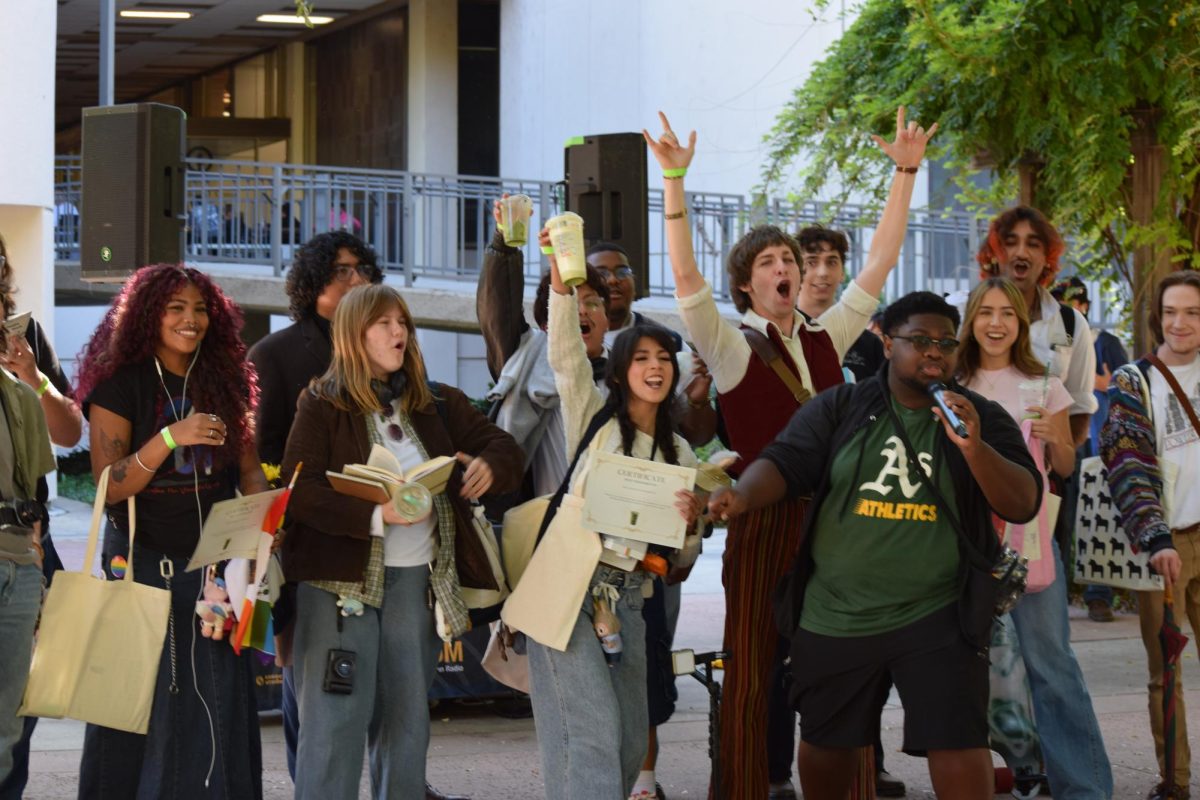Spanish department assesses future cuts

May 11, 2011
The Spanish program at Sacramento State faces the possibility of further cutbacks to courses and sections during the fall 2011 semester.
Nick Burnett, interim associate dean of the College of Arts and Letters, said the department is in the middle of a program review done every five to six years – where they reflect on how they have been doing and what they will do going forward.
“I think they’ve been responsive,” Burnett said. “They’ve been interested in seeing where they can make improvements and doing what they can to stretch their instructional resources. My sense is that the problems they are having would not be very different from the problems that other departments in Arts and Letters are having.”
The Spanish program now has seven full-time professors.
“We’re getting to a point where year after year we’ve had far more people retiring or taking jobs elsewhere than we are of hiring people to replace them,” Burrnett said. “It certainly is a fact and a very serious concern that we have fewer full-time faculty members on staff now then we might have had three or four years ago.”
Spanish professor Wilfrido Corral said he has seen many problems within the program, but he can only speak for himself and his view does not represent that of other faculty members.
Corral said the department will not have enough members of the faculty for the fall semester to run the Spanish program as effective as it should, which will lead to fewer courses being offered.
“I am very concerned that the faculty cannot offer courses that would make our Spanish majors and minors competitive for the employment possibilities for which they would normally be prepared or trained,” Corral said. “A greater concern is that, as one of the few institutions that serves an increasing Hispanic demographic with BA and MA programs, our standing will be eroded.”
Daniela Cardenas, sophomore Spanish major, has had to extend her graduation date because one of her courses will not be available when she needs it.
“I have to wait another semester because some of the courses are only offered during certain semesters either the fall or the spring,” Cardenas said. “I will now graduate in the spring of 2013 instead of fall of 2012.”
She said she does not mind larger class sizes because it does not hinder the amount of classes.
“I think that will be good because it gives more opportunities for students to get into classes they want to get in,” Cardenas said.
What also is holding the department back is the uncertainty of how much Gov. Jerry Brown will ultimately cut in the California State University system.
“We plan for and we think we can implement the 9.7 percent cut, but people have been reluctant to talk about how bad it might be if they end up going for the full billion-dollar cut to the CSU,” Burnett said.
He said despite these concerns, the college will attempt to put money into areas that are most needed for graduating students with one-time funds.
“It’s money they’ve been able to save from previous budgets, or maybe generate in other ways, and they are willing to plug those dollars into the schedule in places that would prevent people, where the absence of classes would prevent people from graduating,” Burnett said.
One of the difficulties faced by the Spanish department is that it not only serves its majors, but also fulfills the university’s foreign language requirement for graduation, Burnett said.
“It creates a set of demands that wouldn’t be there without the foreign language requirement that both I and the dean’s office is very much in support of,” Burnett said.
Corral said instructors at the college level should meet the standard that the institution demands to remain credible.
“There is some sense in having faculty at an institution like ours be generalists, but rigorous competence in a specific field can only come from faculty specifically trained in particular fields,” Corral said. “In my case, I have taught French at the high school level, but it would be a disservice to students to have me teach that language at the college level, or to have an Italian professor teach linguistics – as was once suggested to me while I was chair.”
He said while he cannot address the foreign language department’s difficulties, he said for Spanish (which he calls the bread and butter of foreign languages), the greatest problem at all levels of instruction has been the workload.
Burnett said the problems in the Spanish program stand out more because of the high demand.
“It’s possible that some of the other areas where they have also lost faculty, the demand is not as quite as high, and the result is that Spanish feels it more acutely, but everybody is facing the cutbacks,” Burnett said.
Corral said he is concerned like all of his colleagues.
“We have some excellent, dedicated and productive faculty, but further cutbacks will undermine our present low morale even further,” Corral said.
Cardenas said she loves the Spanish department and her professors, and hopes it does not continue to struggle.
“Maybe one day my major probably won’t be there,” Cardenas said. “It will affect a lot of people because Spanish is very universal now, and we need it.”





























































































































